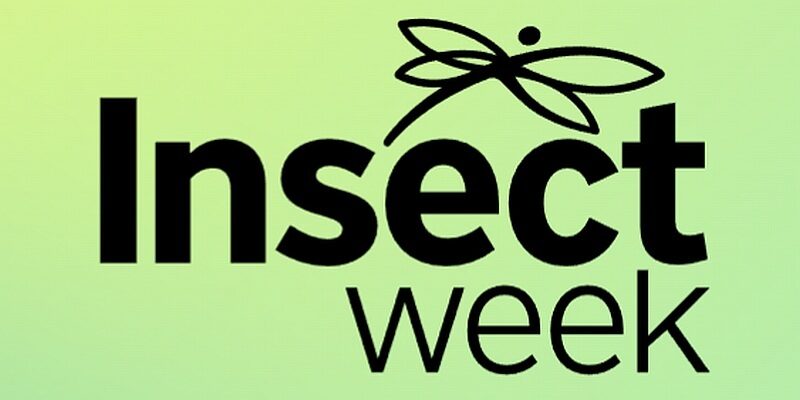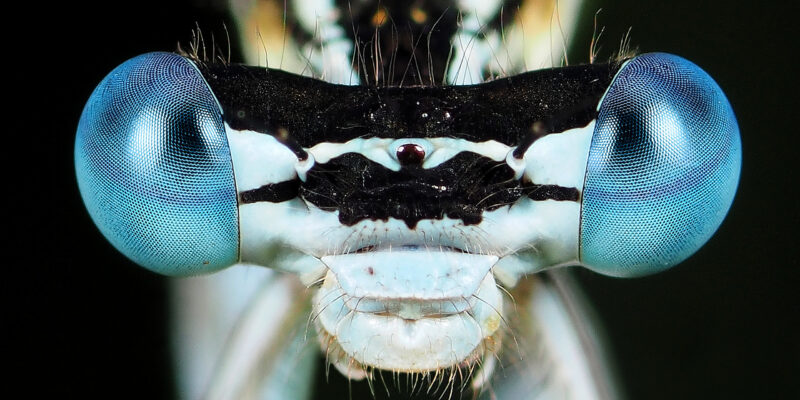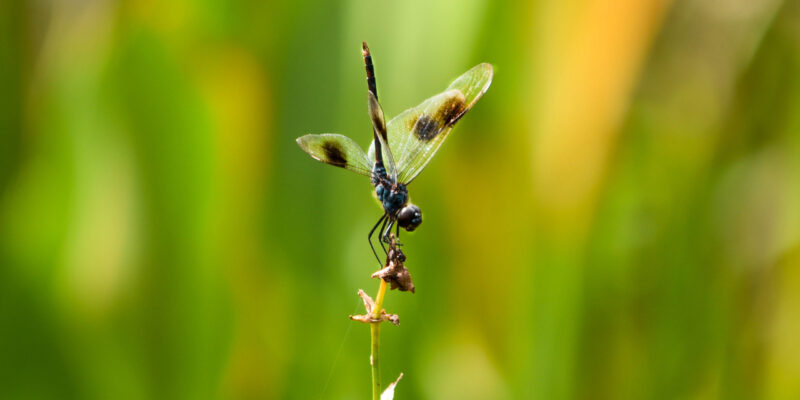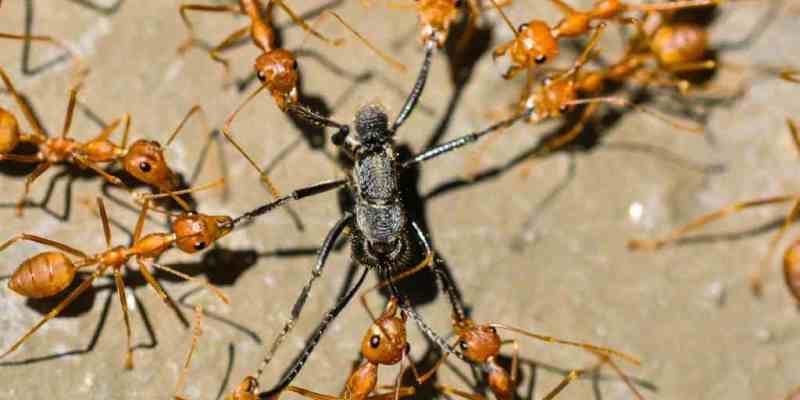Previous Plenaries included notable researchers, some examples including Rosie Hales (Ento02), Charles Godfray Hon.FRES (Ento06), Dave Goulson (Ento15) and Jessica Ware, then-president of the Entomological Society of America (Ento22).
Ento25 – University of Strathclyde, Glasgow
| Year | Keynote/Plenary | Speaker | Institution | Theme/Title |
|---|---|---|---|---|
| 2025 | Plenary | Vojtěch Novotný | – Director, Institute of Entomology at the Biology Centre, Czech Academy of Sciences – Professor of Ecology, Zoology Department, University of South Bohemia | TBC |
| 2025 | Plenary | Nicole van Dam | – Scientific Director at Leibniz Institute of Vegetable and Ornamental Crops – Professor at Friedrich Schiller University of Jena | TBC |
| 2025 | Plenary | Christiane Weirauch | Department of Entomology, University of California | TBC |
Ento24 – University of Liverpool
| Year | Keynote/Plenary | Speaker | Institution | Theme/Title |
|---|---|---|---|---|
| 2024 | Plenary | Michael Samways | Stellenbosch University | Caring for irreplaceable insects: effective conservation strategies in biodiversity hotspots |
| 2024 | Plenary | Susanne Foitzik | Johannes Gutenberg University Mainz | Behaviors, social evolution and genomics of ants. Suzanne’s work focusses on host-parasite coevolution, behavioral genomics of division of labor and the behavior of slavemaking ants. |
| 2024 | Plenary | Steve Torr | Liverpool School of Tropical Medicine | Steve’s research interests have focussed primarily on field-based analyses of tsetse behaviour and ecology leading to improved and cost-effective methods of tsetse control. |
Ento23 – Exeter University
| Year | Keynote/Plenary | Speaker | Institution | Theme/Title | Organiser |
|---|---|---|---|---|---|
| 2023 | Plenary | Jacobus ‘Jaap’ De Roode | Emory University, USA | Migration, microbes and medication in the monarch butterfly | Jason Chapman |
| 2023 | Plenary | Elli Leadbeater | Royal Holloway University of London | Does (collective) cognition produce efficiently foraging bees? | Ben Raymond |
| 2023 | Plenary | Vanessa Kellermann | La Trobe University, Australia | Adaptation in a warming world: insights from Drosophila and bees. | Ben Longdon |
| 2023 | Keynote | Jess Knapp, | Trinity College Dublin | Pollinators | Juliet Osborne and Chris Kaiser-Bunbury |
| 2023 | Keynote | Thomas Mathers | Sanger Centre | Insect genetics and genomics | Bartek Troczka and Angela Hayward |
| 2023 | Keynote | Johan Stenberg | Swedish University of Agricultural Sciences | Pests, biological control and IPM | Dave Chandler, Ben Raymond and Michelle Fountain |
| 2023 | Keynote | Jenny Regan | University of Edinburgh | Infection and immunity | Megan Wallace and Mark Hanson |
| 2023 | Keynote | Anne Duplouy | University of Helsinki | Symbionts and microbes | Ailsa McLean |
| 2023 | Keynote | Thomas Schmitt | University of Würzburg | Insect behavioural and evolutionary ecology | Jeremy Field and Jodie Gruber |
| 2023 | Keynote | Charlie Outhwaite | UCL | Insect conservation and insect declines | Alan Stewart |
| 2023 | Keynote | Shawan Chowdhury | German Centre for Integrative Biodiversity Research | Insect movement and migration | Johanna Hedlund and Jason Chapman |
Ento22 – University of Lincoln
| Year | Keynote/Plenary | Speaker | Institution | Theme/Title |
|---|---|---|---|---|
| 2022 | Plenary | Professor Jessica Ware | Associate curator in invertebrate zoology, American Museum of Natural History, USA | Diversity in entomology: creating space while studying insect evolution |
| 2022 | Plenary | Professor Sylvain Pincebourde | Director of Research, CNRS, France: | The role of microclimate at fine scales in driving exposure of ectotherms to climate change: integrating biophysics, physiology and ecology |
| 2022 | Plenary | Professor Nalini Puniamoorthy | Reproductive Evolution Lab, National University of Singapore | Insect reproduction: Understanding evolutionary diversification and seeking sustainable solutions |
Ento21 – Online
Conference hosted online only due to Covid19 restrictions.
Ento20 – (Exeter) – rescheduled due to Covid19 restrictions
Ento19 – LSHTM
| Year | Keynote/Plenary | Speaker | Institution | Theme/Title |
|---|---|---|---|---|
| 2019 | Plenary | Luke Alphey | Pirbright Institute | Genetic Control of vector mosquito populations |
| 2019 | Plenary | Nick Hamon | Innovative Vector Control Consortium, Liverpool | Partnering to get life-saving vector control innovations rapidly from bench to impact |
| 2019 | Plenary | Raman Velayudhan | Vector Control Advisory Group, WHO Geneva | Implementing sustained vector control for Aedes mosquitos |
Ento18 – Edge Hill University
| Year | Keynote/Plenary | Speaker | Institution | Theme/Title |
|---|---|---|---|---|
| 2018 | Plenary | Professor Stefan Scheu | Georg August University Göttingen | The Good – Below-ground goodies: Ecology and evolution of soil microarthropods |
| 2018 | Plenary | Professor Lin Field | Rothamsted Research | The Bad – Aphids as vectors of crop diseases |
| 2018 | Plenary | Professor Richard Wall | Bristol University | The Bad – Ticks and tick-bourne disease |
| 2018 | Plenary | Dr Jason Dombroskie | Cornell University Insect collection | The Ugly – Yes that’s nice…but look at this! Challenges of generating interest in and relevance to the non-charasmatic microfauna |
Ento17 – Newcastle University
| Year | Keynote/Plenary | Speaker | Institution | Theme/Title |
|---|---|---|---|---|
| 2017 | Keynote | Lars Chittka | Queen Mary, University of London | Analysing plant-pollinator interactions with spatial networks |
| 2017 | Keynote | Jenny Hodgson | University of Liverpool | Networks to enable species to survive climate change |
| 2017 | Keynote | Catherine Reavey | Oxitec | Nutritional complexity and its role in the mediation of host-parasite interactions |
| 2017 | Keynote | Claire Rind | Newcastle University | Great minds don’t all think alike: locusts see differently |
| 2017 | Keynote | Sarah E. Barlow | University of Utah | Distasteful nectar toxins deter floral robbery |
| 2017 | Keynote | Nina Wedell | University of Exeter | Sex, conflict, and selfish genes |
| 2017 | Keynote | David M. Shuker | University of St Andrews | Reproductive interference in insects |
| 2017 | Keynote | Angharad M. R. Gatehouse | Newcastle University | New Technologies and Molecules for Crop Protection |
| 2017 | Keynote | Ana B. Sendova-Franks | UWE | Ants as a Model of Social Interaction |
| 2017 | Keynote | Audrey Dussutour | Université Toulouse | Recent Advances in the Integrative Nutrition of Ants |
| 2017 | Keynote | Janice S. Edgerly | Santa Clara University | Silk as Armor and a Web of Adaptation (the Order Embioptera) |
| 2017 | Keynote | Ramiro Morales-Hojas | Rothamsted Research | How can molecular ecology help us improve monitoring insect pests of agricultural importance? |
| 2017 | Keynote | Yoshifumi Yamawaki | Kyushu University | Decision-making and motor control in the praying mantis: To attack or not to attack. |
| 2017 | Keynote | Nicola Nadeau | University of Sheffield | How did the butterfly get its colours? The evolution and genetics of colour and pattern in Heliconius butterflies |
| 2017 | Keynote | Mathieu Lihoreau | University of Toulouse | Nutritional interactions in insect societies |
| 2017 | Keynote | Darren Evans | Newcastle University | Merging DNA metabarcoding and ecological network analysis to understand and build resilient terrestrial ecosystems |
Ento16 – Harper Adams
| Year | Keynote/Plenary | Speaker | Institution | Theme/Title |
|---|---|---|---|---|
| 2016 | Plenary | Peter Witzgall | Swedish University of Agricultural Sciences | Pathogens, insects and volatiles |
| 2016 | Plenary | Saskia Hogenhout | John Innes Centre, Norwich | How virulence protiens modulate plant processes to promote insect colonisation |
| 2016 | Plenary | Helen Roy | Centre for Ecology and Hydrology, Wallingford | Citizen Science and invasive species |
Ento15 – Trinity College Dublin
| Year | Keynote/Plenary | Speaker | Institution | Theme/Title |
|---|---|---|---|---|
| 2015 | Plenary | Dave Goulson | University of Sussex | Global threats to insect pollination services |
| 2015 | Plenary | Alexandra-Maria Klein | University of Freiburg | Biodiversity and pollination services |
| 2015 | Plenary | Lynn Dicks | University of Cambridge | How much flower-rich habitat is enough for wild pollination? Answering a key policy question with incomplete knowledege |
| 2015 | Plenary | Simon Leather | Harper Adams University | Influential Entomology – the scientific, societal, economic and educational services provided by entomology and entomologists: a review |
| 2015 | Plenary | Jan Bengtsson | Swedish University of Agricultural Sciences | Biological Control in a landscape perspective |
| 2015 | Plenary | Sarina Macfadyen | CSIRO | Temporal patterns in plant growth and pest populations across agricultural landscapes in Australia |
| 2015 | Plenary | Charles Midega | International Centre of Insect Physiology and Ecology, Nairobi, Kenya | Companion cropping for sustainable pest management: experiences from Eastern Africa |
| 2015 | Plenary | Jerry Cross | East Malling Research | Arthropod ecosystem services in apple orchards and their economic benefits |
| 2015 | Plenary | Michael D. Ulyshen | USDA Forest Service | Wood decomposition and nutrient cycling as influenced by insects |
| 2015 | Plenary | Craig Macadam and Jenni Stockan | Buglife/James Hutton Institute | More than just fish food – the contribution of aquatic insects to freshwater ecosystems |
| 2015 | Plenary | Sarah Beynon | Dr Beynon’s Bug Farm Ltd | Ecosystem services provided by dung beetles (Coleoptera: Scarabaeidae) in agro-ecosystems |
| 2015 | Plenary | Thomas Bolger | University College Dublin | The delivery of ecosystem services by soil arthropod communities – management and conservation activities at different spatial scales |
Ento14 – ECE York
European Congress of Entomology took place of Ento14.
Ento13 – St Andrews University
Plenaries not listed in Programme.
Ento12 – Anglia Ruskin University
Summary from Meeting Report.
| Year | Keynote/Plenary | Speaker | Institution | Theme/Title |
|---|---|---|---|---|
| 2012 | Plenary | Dr Andrew Liebhold | US Forest Service | “issues and concerns of global insect invasions” |
| 2012 | Plenary | Professor Ingolf Steffan Dewenter | University of Würzburg | “Global change is presently affecting many organisms, in particular insect biodiversity” |
| 2012 | Memorial Lecture | Helen Roy |
Ento11 – Greenwich University
No Keynotes or Plenaries listed in archives, additional invited speakers present.
| Year | Keynote/Plenary | Speaker | Institution | Theme/Title |
|---|---|---|---|---|
| 2011 | President’s invited Speaker | Xavier Belles | Barcelona | Regulation of insect metamorphosis. From Maria Sibylla Merian to Alexander Calder |
Ento10 – Swansea University
| Year | Keynote/Plenary | Speaker | Institution | Theme/Title |
|---|---|---|---|---|
| 2010 | Plenary | Sharmilla Bhattacharya | NASA Ames Research Centre | Using fruit flies to evaluate the space flight environment |
| 2010 | Plenary | Norman Ratcliffe | Swansea University | Natural products and processes from insects: raising the profile of beneficial species |
Ento09 – Sheffield University
Summary from Meeting Report.
| Year | Keynote/Plenary | Speaker | Institution | Theme/Title |
|---|---|---|---|---|
| 2009 | Plenary | Hannah Rowland | University of Liverpool | Behavioural traits to avoid detection: Investigating the phototactic behaviour of countershaded caterpillars |
| 2009 | Plenary | Niels Kristensen | Natural History Museum of Denmark, University of Copenhagen | “Morphology and insect systematic in a molecular era” |
| 2009 | Plenary | Naomi Pearce | Harvard University | Nabokov meets Darwin: origin and evolution of blue butterflies |
Ento08 – Plymouth University
More information to be found in Antenna.
Ento07 – Edinburgh University
More information to be found in Antenna.
Ento06 – Bath University
| Year | Keynote/Plenary | Speaker | Institution | Theme/Title |
|---|---|---|---|---|
| 2006 | Plenary | Tim Karr | Bath | Sperm’s eye view of evolution |
| 2006 | Plenary | Charles Godfray | Imperial College | The coevolutionary dance between parisitoids and their hosts |
| 2006 | Plenary | Greg Hurst | UCL | Insect Evolution in the fast lane: the dynamic conflict between a male-killing bacterium and its butterfly host |
Ento05 – Sussex University
More information to be found in Antenna.
Ento04 – University of York
| Year | Keynote/Plenary | Speaker | Institution | Theme/Title |
|---|---|---|---|---|
| 2004 | Plenary | Prof. Curtis | London School of Hygiene and Tropical Medicine | Insecticide treated nets for malria mosquito control |
| 2004 | Plenary | Dr Ian Woiwod | Rothamsted Research | Are GM crops bad news for insects? |
Ento03 – Reading University
| Year | Keynote/Plenary | Speaker | Institution | Theme/Title |
|---|---|---|---|---|
| 2003 | Plenary | John Whittaker | Lancaster | Floods, fumes and Fungi; some hazrds of an insect herbivore |
| 2003 | Plenary | Dr Paul Eggleton | NHM | Eating soil: rainforests and thw evolutionary ecology of termites |
Ento02 – University of Cardiff
Summary from Meeting Report.
| Year | Keynote/Plenary | Speaker | Institution | Theme/Title |
|---|---|---|---|---|
| 2002 | Plenary | Robert Woottton | an amusing and animated account of how insects control flight by modifying wing shape’ | |
| 2002 | Plenary | Rosie Hails | “the many factors that need to be considered when growing genetically improved crops” |
Ento01 – University of Aberdeen
| Year | Keynote/Plenary | Speaker | Institution | Theme/Title |
|---|---|---|---|---|
| 2001 | Plenary | John Pickett | Instute of Arable Crops Research | The blurring of the distinction between insect pests of animals and plants (Not official title) |
Ento2000 – Liverpool Hope University College
More information to be found in Antenna.
Ento99 – Imperial College, University of London
More information to be found in Antenna.
Ento98 – Exeter University
More information to be found in Antenna.
Ento97 – University of Newcastle
Details of Speakers in Antenna Report, but not which ones are Keynotes/Plenaries.




